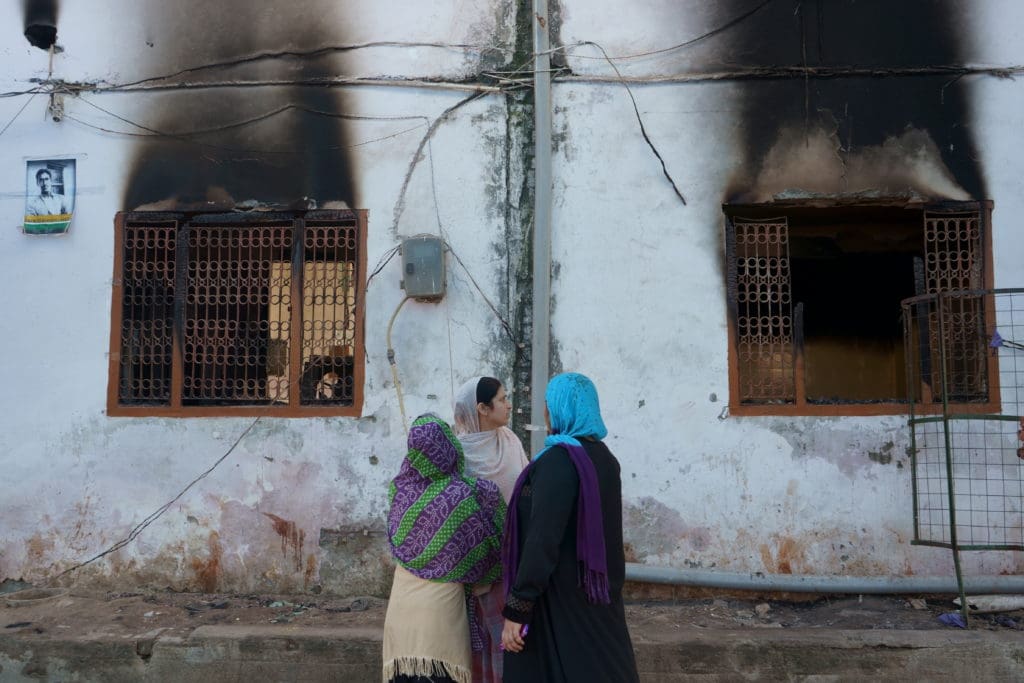
By
There was a political shift in the South Asian American community last week which arrived quietly but will have consequences for years to come. It reverberated from its origin in the progressive wing of the Democratic Party with implications for the United States, India and world geopolitics.
Congressman Ro Khanna (D-Fremont) tweeted the following on Aug. 29: “It’s the duty of every American politician of Hindu faith to stand for pluralism, reject Hindutva, and speak for equal rights for Hindus, Muslims, Sikhs, Buddhist & Christians.”
The quote seems innocuous without context, therefore, a brief political summary follows.
The history of the South Asian subcontinent is complex with language, religion, ethnicity and caste that predate America by several millennia. The Indian democracy has been managing this complexity with mixed success since its colonial independence in 1947. In fact, violence against minorities has often been a path to electoral success. Although there are many examples, the most recent and infamous are the 1984 Genocide of Sikhs in Delhi and the 2002 Gujarat Massacre of Muslims.
In recent years, Indian Prime Minister Narendra Modi has won elections by pairing violent political rhetoric with virtual impunity for those that engage in the rape, torture, murder and oppression of Indian Christians, Muslims, Sikhs, Buddhists, Ravidassias, and Hindu Dalits. (See the US Commission on International Religious Freedom Reports for detail.) Modi’s political party (BJP) and its cultural counterpart organizations (RSS, VHP, etc.) form the backbone of the Hindutva movement. However, in deference to the complexity of India, we should note that this is not simply a religious conflict. Hindutva is a fascist and supremacist movement similar to white supremacist movements in the US. It mobilizes around a virulent religious ethno-nationalism, holding that India is a homeland for only Hindus and uses violence to intimidate compliance around its economic and political policies.
Every organ of Indian democracy is in crisis under Hindutva and progressive movements across South Asia have been mobilizing to ask the world for solidarity as they continue to bravely resist the volatile conditions in the region. Further, Modi and the Hindutva movement have set upon a path to influence U.S. policy from within the American political system, which brings us to recent events.
Last month, Caravan published a longform exposé by South Asian analyst, Pieter Friedrich. The article sourced and detailed decades of Hindutva organizing in the US and their development of political allies. At the top of that list is Congresswoman Tulsi Gabbard, also a candidate for the US presidency, who has cultivated deep ties to the Hindutva movement. She attends their events in India and the US, solicits money from American Hindutva organizers, and even invited their leaders to her intimate wedding ceremony. As an apparent term of that bargain, she does not engage in criticism of the Indian government and often advocates its positions during US policy debates.
On Aug. 12, the author of the Caravan article tweet-replied to a Gabbard campaign post, providing a link to the piece. Khanna also replied. The exchange is provided below:
Khanna’s statement was immediately recognized by South Asian politicos as a seismic shift in Indo-centric politics. He is the highest ranking American elected official of Indian origin, with a deep understanding of and connection to South Asian politics, and, yet, he stated in decisive moral terms that the dominant political ideology of India must be rejected as a matter of fundamental human rights.
This is brave new ground for South Asian policy discourse in the US.
Khanna’s statement incited a torrent of hate and criticism from pro-Hindutva and pro-India political supporters, balanced by progressives and anti-Hindutva activists heralding his courageous stance. However, the full measure of Khanna’s words is yet to be felt. Modi and the Indian government are certain to be dismayed by this challenge to the inroads they have made within certain sectors of the Indian community in the US.
In the coming months, we will see a debate within the South Asian American community and the Democratic Party regarding the morality of Hindutva and how the party can reach consensus given the political crisis in India. Khanna’s statement goes to the heart of this debate by laying bare the obvious hypocrisy of Hindutva’s American supporters.
South Asian Americans simply cannot claim to support civil rights and equality for all Americans while simultaneously advocating for religious supremacy that results in the rape, torture, murder and oppression of minorities in India.
If white supremacist hate crimes against South Asians in America are reprehensible and corrosive to society, then Hindutva supremacist hate crimes against Dalits, Muslims, Sikhs, Buddhists and Christians in India must also be condemned.
Khanna’s statement breaks new ground for South Asians and for all in the progressive movement. He is joining progressive South Asian Americans and our allies around the world in standing against oppression. His rejection of Hindutva encourages us all to embrace the principles of fundamental human rights that bind us together as Americans.
This story was first appeared on sanjoseinside.com





